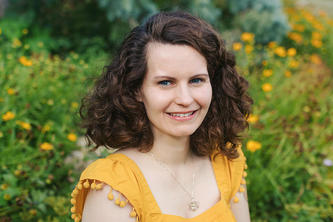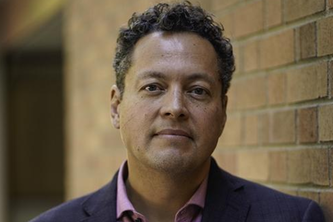
As we head into the winter holiday season and the many gatherings with immediate and extended family that this season can bring, University of Minnesota College of Education and Human Development family therapist and professor Tai Mendenhall shares his expertise about how to navigate adult family dynamics.
Q: What are the most common themes you observe in adult family dynamics?
Prof. Mendenhall: Family scholars have identified myriad relational dynamics that play out differently across healthy versus unhealthy families, and these vary in the ways that they manifest across different cultures and social groups. Some of the most common themes include:
- Communication: how we express ourselves to each other, and how we listen to and/or receive others when they talk with us.
- Closeness and cohesion: how close and engaged we are, or how distant and disengaged we are.
- Adaptability: how we solve problems and navigate stress together.
Most of these dynamics are best when they are somewhere between “too much” and “too little,” and they evolve over time and context. They also tend to shift between parents and children as the children grow up.
Q: What should parents keep in mind when their adult children visit?
Prof. Mendenhall: Remember that they are adults now. The manner in which they do any variety of things may be different than the ways that you would do things — from cooking to driving to responding to an acting-out child. Your job as their parent is no longer to guide, teach and discipline as you did when they were young. Pick your battles with your adult children and don’t sweat the small stuff. The visit is temporary, so enjoy time together — visit, share, play games, see shows or exchange gifts.
Q: How can adult children approach family visits?
Prof. Mendenhall: Your parents are still your parents. If you are visiting them in their home, respect that it is their space, not yours. For example, don’t change the thermostat without asking them first and remember to clean up after yourself. Be sure to engage with them in authentic conversations; avoid scrolling through social media and watching TV independently.
Q: What advice would you give to family members about navigating difficult conversations such as politics?
Prof. Mendenhall: It depends. If the family members who are visiting each other are not especially close or if the visit is only going to be for a couple of hours over a holiday meal or gift-exchange, it might be best to just keep politics off the table. If family members are more invested in navigating potentially-heated conversations — and have time to do it — my suggestion is to check out readily-available guidelines and suggestions regarding ways to reach mutual understandings about interpersonal differences. Find some common ground about things that you both agree about. Listen to understand, not to respond, attack, criticize or defend. Remember that it is doubtful that you will substantively change each other's mind or position e.g., "win" the argument. The best outcome is to sustain — and sometimes even enrich! — the relationship.
Q: Where can people find more information about this topic and how does the U of M support healthy family dynamics?
Prof. Mendenhall: I would encourage anyone who is really struggling with couple and family dynamics to seek support – the earlier, the better – through a licensed marriage and family therapist (LMFT). These professionals specialize in working with family systems through a variety of interpersonal processes in problem-solving, healing and growth.
Some great resources to search for LMFTs include the American Association for Marriage and Family Therapy’s Therapist Locator and the Minnesota Association for Marriage and Family Therapy’s Find a Relational Therapist.
Tai Mendenhall is a Medical Family Therapist and Professor in the Couple and Family Therapy Program at the University of Minnesota in the Department of Family Social Science. He is also the Associate Director of the UMN’s Citizen Professional Center and Director of the UMN’s Medical Reserve Corps’ Mental Health Disaster-Response Teams.
-30-
About the College of Education and Human Development
The University of Minnesota College of Education and Human Development (CEHD) strives to teach, advance research and engage with the community to increase opportunities for all individuals. As the third largest college on the Twin Cities campus, CEHD research and specialties focus on a range of challenges, including: educational equity, teaching and learning innovations, children’s mental health and development, family resilience, and healthy aging. Learn more at cehd.umn.edu.
About “Talking...with U of M”
“Talking...with U of M” is a resource whereby University of Minnesota faculty answer questions on current and other topics of general interest. Feel free to republish this content. If you would like to schedule an interview with the faculty member or have topics you’d like the University of Minnesota to explore for future “Talking...with U of M,” please contact University Public Relations at [email protected].
- Categories:
- Social Sciences
- Family and social relationships





